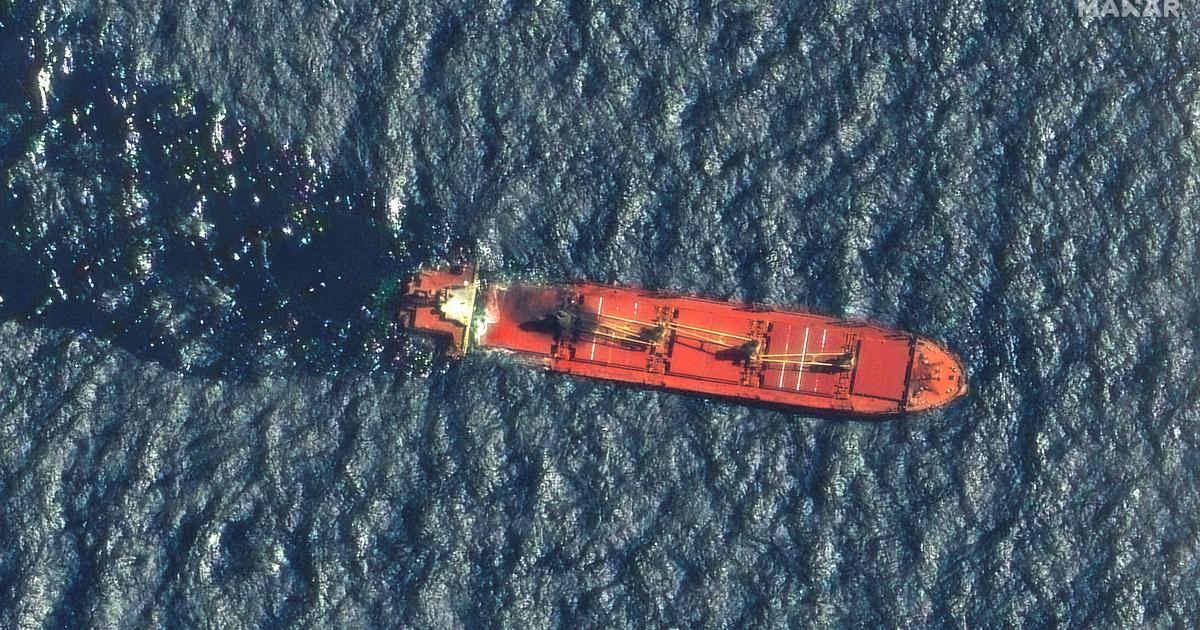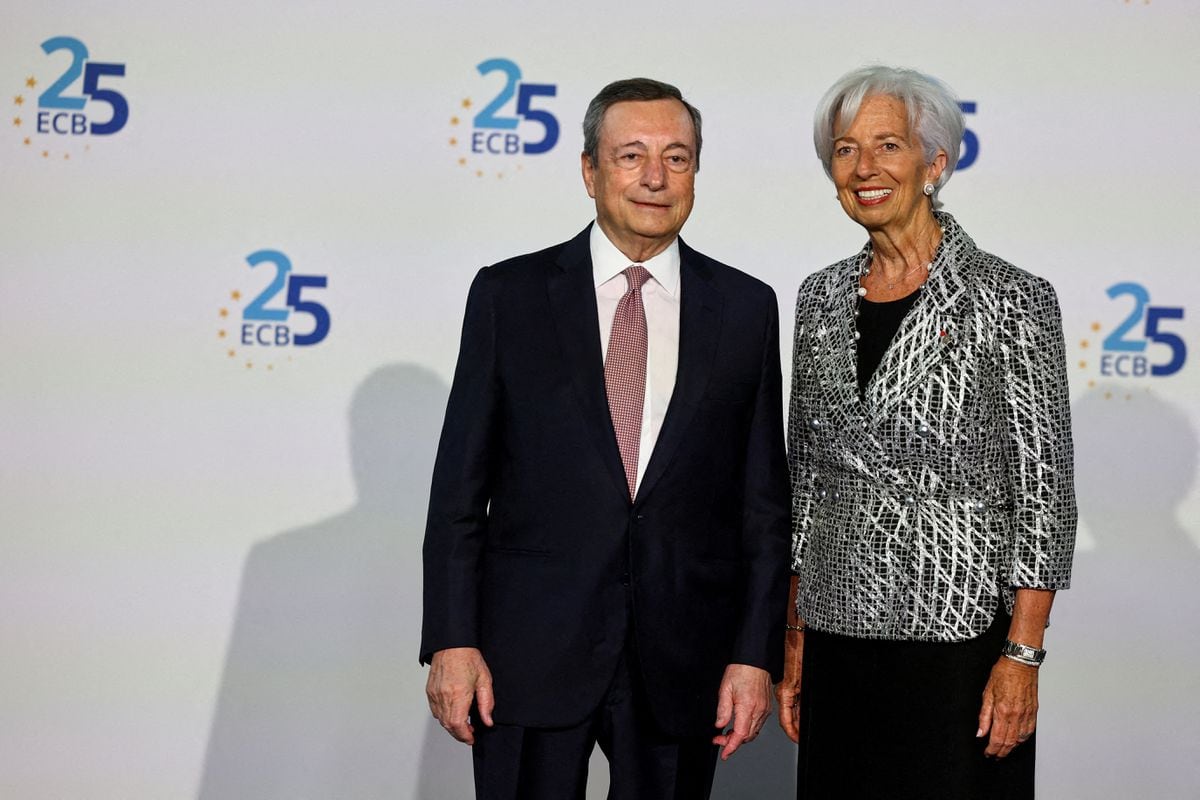The sea is for the swimmer the piece of coast where every summer he splashes. And for the traveler, the blue rectangle that blends into the sky through the airplane window. It is a source of fishing disputes in conflicts such as Brexit. And a wild universe full of surprises for the scientist. But the oceans, perhaps due to their vast dimensions and their inaccessibility, are still not considered in the collective imagination as the true circulatory system of the economy. A place where 90% of world trade moves on board heavy container ships of hundreds of thousands of tons, or oil tankers, gas carriers, bulk carriers and refrigerators.
The maritime industry has been a silent ally of globalization for decades. Goods move more slowly than by air, but at a much lower price. Ships pollute, but except for occasional spills, almost always more discreetly, far from cities. They do not contribute to making traffic jams worse like trucks. Nor do they go through towns and cities like the railroad tracks. Whoever does not approach a port or has acquaintances in the sector can live with their backs to its existence, despite the fact that without those thousands of dots that move on the water on the internet maps where the position of the ships can be followed in time real, the way of consuming would be very different. Probably more expensive and much less diverse.
Two phenomena have taken the sector out of invisibility. In March 2021, the gigantic container ship
Ever Given
ran aground in the Suez Canal, blocking trade on that artery for six days. The fatal accident put the world in front of a reality: a simple maritime mishap due to bad weather has the potential to turn supply chains upside down. The second case is less spectacular, but much more serious due to its persistence: for months, the recovery in consumption, the lack of space on the ships and the bottlenecks in the ports have caused long delays and have triggered the rates they charge. the shipping companies, knowing that in times of scarcity and rush, they are the ones who have the upper hand in setting prices.
The benefits of some are the losses of others. Logistics managers at importing companies are living a nightmare. They do not know when their order will arrive, so they double the bet: they buy more to store it and thus get rid of the ghost of shortages, which in turn reduces capacity on ships, and encourages a bloody war to get a container that sometimes It ends up with the product stranded on land. "We have large shippers to whom the shipping companies have broken the contract and have been told: I do not want you to be my client and if you have any problem, report it," says Jordi Espín, general secretary of Transprime, the Spanish Association of loading companies. .
In this elbow race, not all companies compete on equal terms. Shipping companies are now in a position to choose their clients, preferring those who contract more volume, pay on time and load and unload in a fluid way. Espín assures that companies outside of that chosen Olympus can be made to pay up to four times more to carry a container on the same Asia-Europe route, and is very critical of the system. "It's like when you go to ask for a mortgage and banks look at your history," he compares.
The Catalan manager, who also represents European exporters and importers in negotiations with Brussels and the large merchant ship firms, believes that bottlenecks will last throughout 2022, and sees it necessary to restore a certain predictability to maritime transport. Complains that the service has deteriorated. “It is all for the client but without the client. They arrive when they want, there are no containers, they take them to China to load them back to Europe because that is how they earn money ”, he reproaches. And it blames Brussels for authorizing the birth of an oligopoly of three alliances of the main shipping companies - Ocean Alliance, 2M and The Alliance - which controls 75% of the market, undermining competition.
From the Danish shipping company Maersk, the largest in the world, they deny that there is anything like an oligopoly. "We have a market share of 20%", retes Diego Perdones, CEO of the company for France, Iberia and the Maghreb. The company has more than 700 ships, of which almost half are owned. He believes that if a few years ago low freight rates were accepted as normal, now it would not be necessary to tear their clothes due to the rise, for which they say they are not responsible. He argues that the problem is not at sea, but on the coast, where there are no truckers to unload, and they explain that putting more ships to sail would not solve the imbalances caused by the pandemic. Quite the contrary. "If you have a traffic jam on the M-30 in Madrid, the last thing you want is to put more cars," says Concha Boo, as an example.Maersk communication manager.
The Nordic firm is taking advantage of the rain of extra millions it collects from high prices to diversify. It has strengthened its airline division by buying new airplanes, and has acquired e-commerce companies to change its model from port to port to carry goods from door to door. The traffic jam at sea has pushed importers to seek new communication channels: trains from China to Europe are crowded, truck journeys have increased despite the enormous distance and their environmental impact, and there are more goods in the air, although airplanes, unlike ships, cannot carry the heaviest products.
Down in the seas, importers regret that the trip from China to Europe now takes four weeks, compared to the previous three, a delay after which they see a strategy by shipping companies to save fuel and pollute less at the expense of their customers. Perdones, from Maersk, perceives it differently: he says that maritime transport is now like a metro at rush hour where sometimes a station [port] is closed and other times there are trains that never appear. Meanwhile, the platforms do not stop arriving passengers [goods].
Nils Haupt, of the German shipping company Hapag Lloyd, the fifth in the world, puts figures on the jam. “Right now [early December] in Los Angeles there are 70 ships waiting to enter the port. It is a lot. Prices have risen more for less frequent customers. If you need 20 containers and you don't have a long-term contract, it is very expensive ”, he admits.
To well-documented dangers such as hurricanes and pirates, the pandemic has added the uncertainty factor: sudden border closures have forced crew members to spend months and months on board away from their families. A crew of between 20 and 30 people is enough to move those horizontal skyscrapers. A space where Indian and Filipino sailors predominate, the preferred ones because they are well trained, charge less and speak good English. Women are scarce. “Many of those who were on the boats now do clerical work because sailing means three or four months without seeing the family,” explains Haupt.
In the book
Ninety Percent of Everything
(Captain Swing), where the British journalist Rose George recounts her experience aboard a container ship, one of the reflections exhibits the paradox that as ships grow in size, their visibility in the media or on foot street is rather narrow.
And thus describes the importance of the neglected maritime industry.
“These ships and containers belong to a business that feeds us, clothes us, warms us and provides us.
They are the hidden reason for your cheap T-shirt or your cheap TV.
But who watches these days behind the television and sees the ship that transported him?
Who cares about the men who drove breakfast cereals through winter storms?
Uncertainty about green fuels
The maritime industry is not on the fringes of the trend towards the decarbonisation of transport around the world, but regulatory uncertainty is holding back investments in cleaner ships. The Danish shipping company Maersk has built eight ships capable of sailing on green methanol, 5 or 6% more expensive than normal. If all goes well, they will enter the testing phase in northern Europe in 2023 and will be ready in 2024. These ships will sail equipped with double tanks: that is, they will also be able to use current fossil fuels to move around. The problem is that the sector is still not clear about the technology that will be imposed, and opting for building very expensive ships that could be made obsolete by future ecological regulations is a risk that few want to take.From Maersk they say they have assumed a leadership position to end the logic of the chicken and the egg: as long as green ships are not built, demand is not encouraged either, so they hope that their advertisements will help the producers of these clean fuels increase their capacity strongly, because otherwise they will have to go back to less climate-friendly fuels. This fact, together with the high prices of freight, has caused the fleet to age, since shipping companies are choosing to extend the useful life of their ships to take advantage of the boom in the sector, while if the rates were low they would have opted for scrap older ships.So they hope that their advertisements will help the producers of these clean fuels to increase their capacity strongly, because otherwise they will have to go back to the less climate-friendly fuels. This fact, together with the high prices of freight, has caused the fleet to age, since shipping companies are choosing to extend the useful life of their ships to take advantage of the boom in the sector, while if the rates were low they would have opted for scrap older ships.So they hope that their advertisements will help the producers of these clean fuels to increase their capacity strongly, because otherwise they will have to go back to the less climate-friendly fuels. This fact, together with the high prices of freight, has caused the fleet to age, since shipping companies are choosing to extend the useful life of their ships to take advantage of the boom in the sector, while if the rates were low they would have opted for scrap older ships.given that shipping companies are choosing to extend the useful life of their ships to take advantage of the boom in the sector, while if rates were low they would have chosen to scrap older ships.given that shipping companies are choosing to extend the useful life of their ships to take advantage of the boom in the sector, while if rates were low they would have chosen to scrap older ships.















